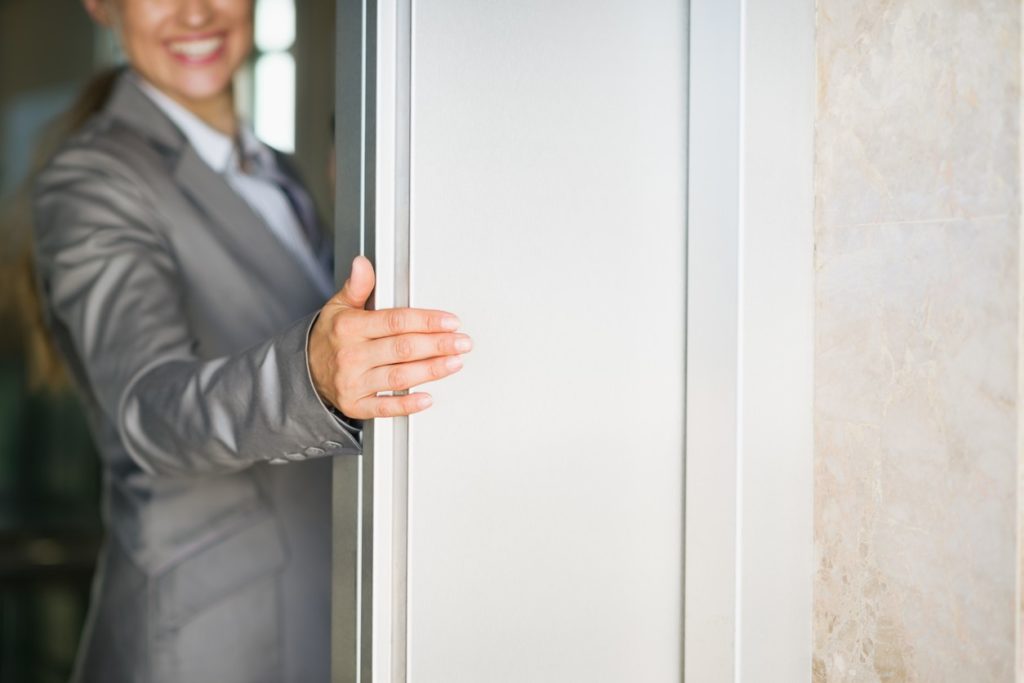The next time you take a ride, be sure to follow these four protocols
Unless you live in a town without any tall buildings and you’ve never traveled outside the city limits, you’ve ridden in a lot of elevators. For most folks – elevatorphobes excluded – this is no big deal; you wait, get in when the doors open, push your floor button, and then get out.
But even if this is something you’ve done hundreds of times, it is possible you’ve been violating basic elevator etiquette and not even realizing it. Here are some (somewhat flexible) rules to follow that your fellow passengers will surely appreciate:
Don’t cut the line
Now, in most instances when waiting for an elevator, there usually isn’t a clear-cut line, per se. People are typically milling about in a loose cluster. However, if you pay attention, you’ll almost always be able to tell who was there first, especially when the elevator comes. And if you arrive with 10 people already there and decide you’re going to bolt for the doors, not only is this rude, you’re going to have to spend some uncomfortable minutes with several annoyed people.
Let the ladies go first (or don’t)
We still live in a society that insists ladies go first in many instances, and most men would probably let a woman go ahead of them when entering or exiting an elevator. But, according to a manners expert, while fine on a date, this doesn’t apply at work. On the job, gender shouldn’t matter. Men: You can still be chivalrous if you like, but if you’re late for a big meeting, don’t feel the need to lose your spot.
Know how to work the hold button
Let’s face it: Most of us are pretty selfish. We’ve got a lot of things on our minds and most of them concern ourselves. When you step into an elevator, you’re almost certainly thinking about getting to your floor as quickly as possible. So, when you see somebody sprinting across the lobby, desperate to get onboard, you may not be too sympathetic. But if you’re alone in the elevator, you should do the decent thing and hold the door. If there are others with you, and you’re the button pusher, you’ve got a decision to make; but most people won’t be too upset for the extra five seconds they will have to wait.
Put your phone away
While this is probably a tall order for some, it is possible to survive a few minutes without your phone. If you can’t bear it to be out of your hands, texting and Internet browsing are okay, but unless it’s an absolute necessity, no calls. Nobody wants to be stuck four feet from you while you chat with someone, especially when it’s a personal conversation.
Whether it’s your office, apartment building, or anywhere else that has an elevator, be sure to think about these etiquette rules the next time you use an elevator. What you shouldn’t have to think about is whether or not it’s functioning properly. Connection Elevator is committed to keeping elevators in South Florida up to code and running at peak performance. If your elevator is in need of repairs or it’s time for some modern upgrades, give us a call at 954-792-1234 or just fill out our online contact form.

